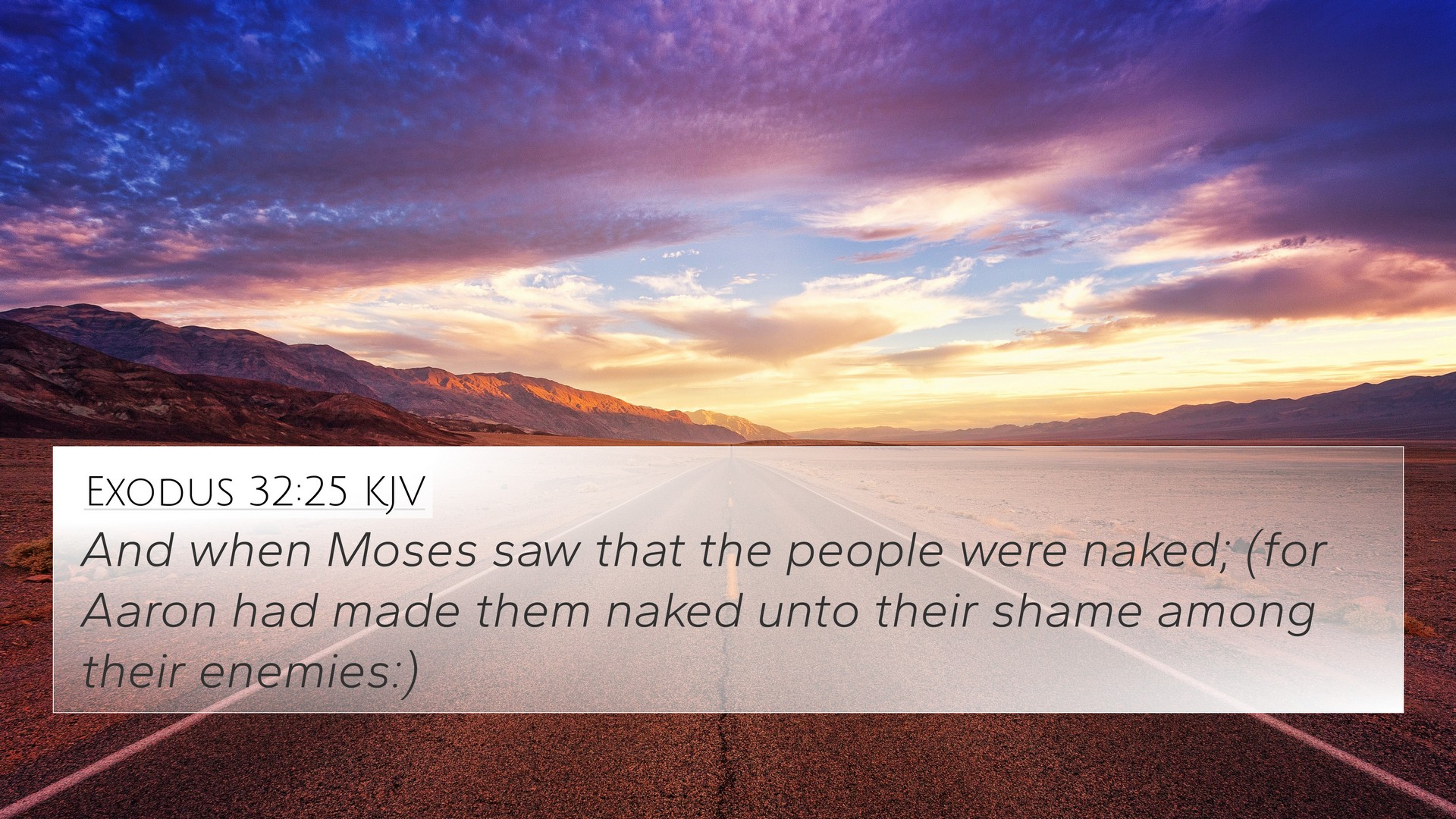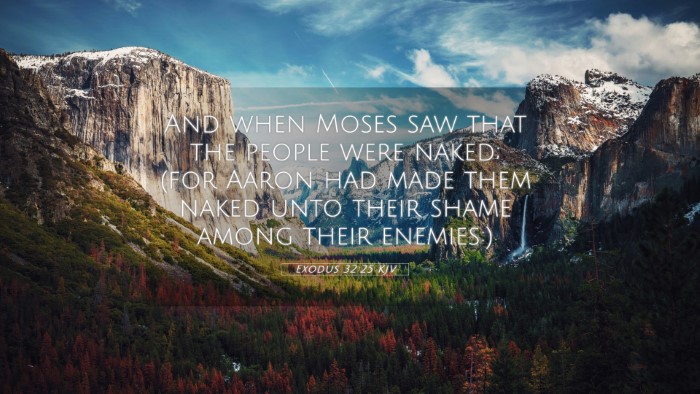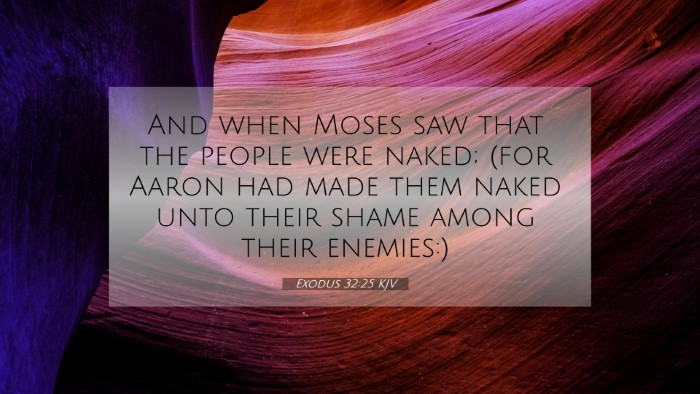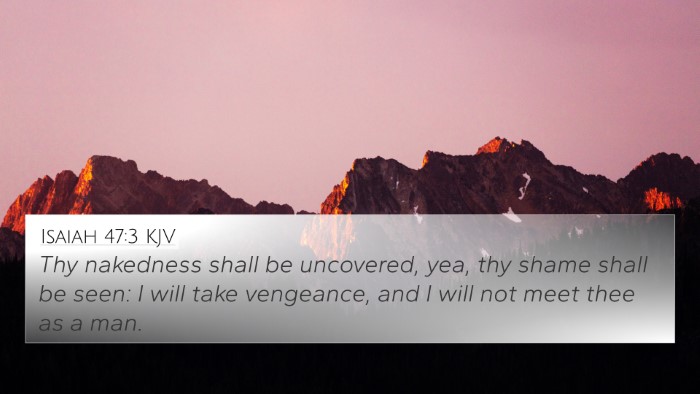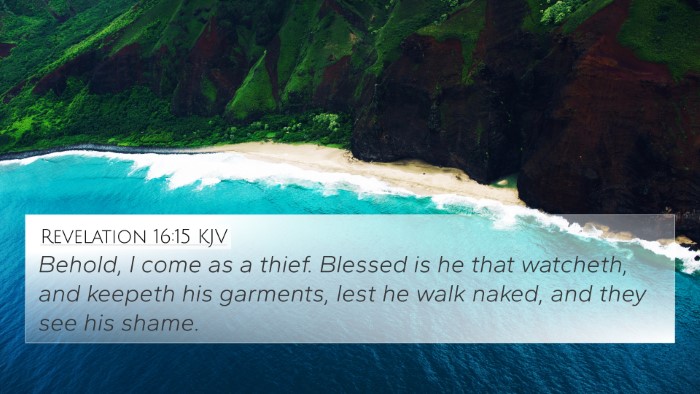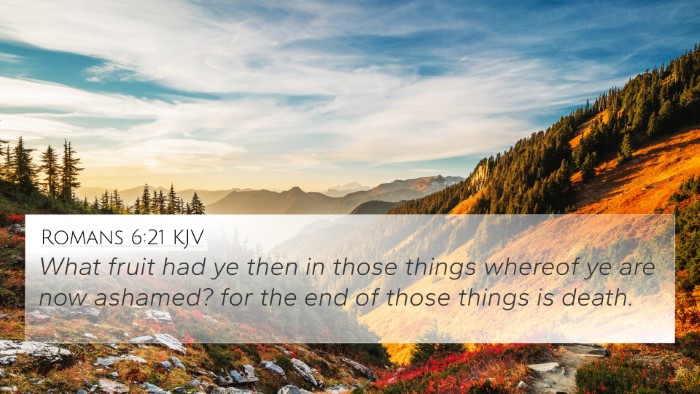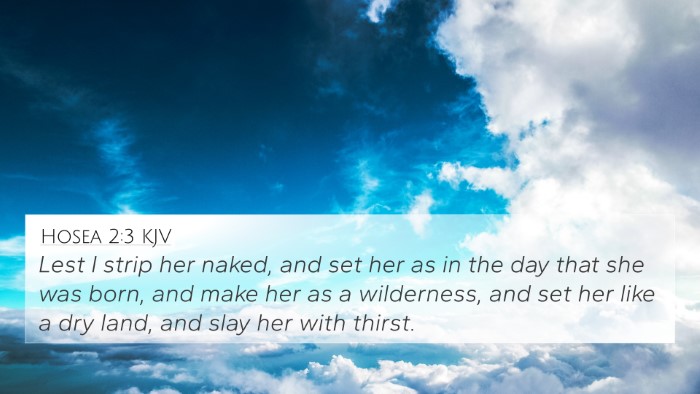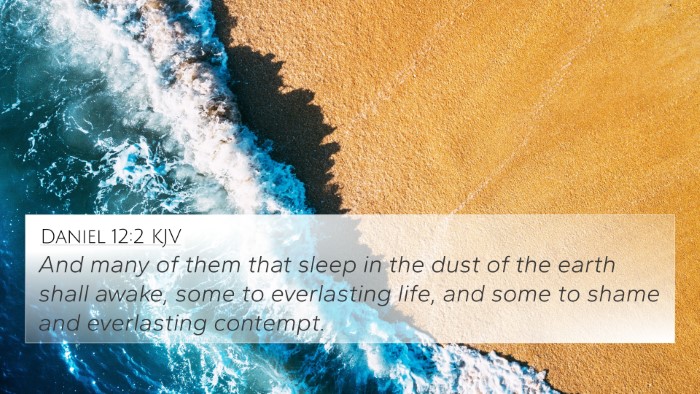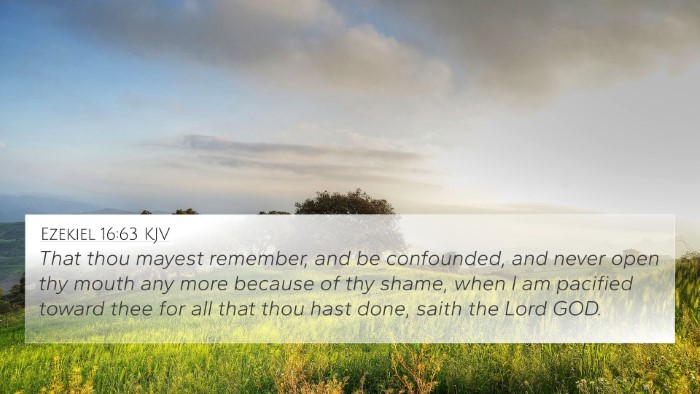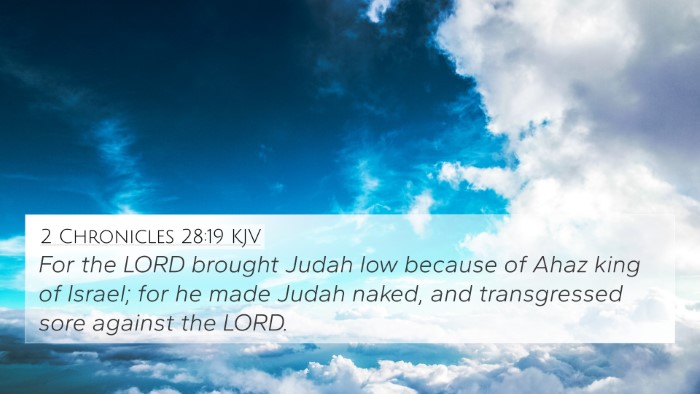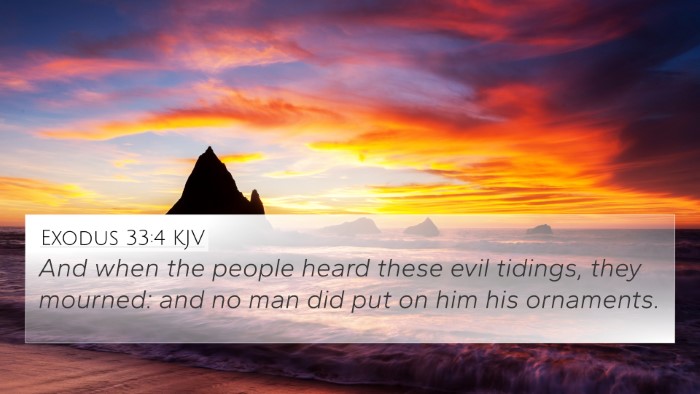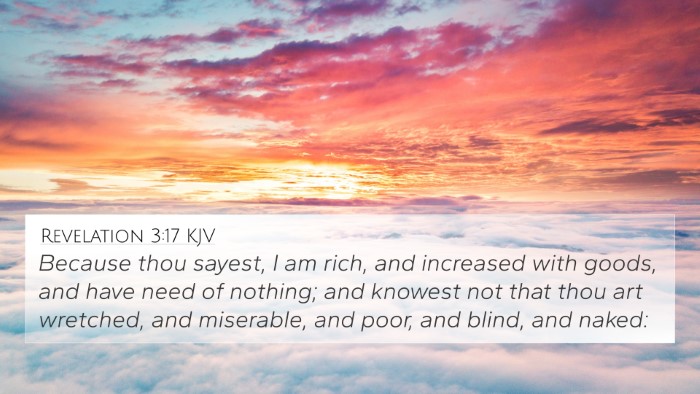Understanding Exodus 32:25
Exodus 32:25 reads: "And when Moses saw that the people were naked; for Aaron had made them naked unto their shame among their enemies."
Summary of Exodus 32:25
This verse captures a critical moment in the Sinai narrative where Moses confronts the idolatry of the Israelites. Aaron, under pressure from the people, had fashioned a golden calf, leading the Israelites into a shameful display of rebellion against God. This act reveals a deeper understanding of sin and its consequences within the community of faith.
Commentary Insights
Matthew Henry
Matthew Henry emphasizes the gravity of the situation. He notes that the nakedness of the people symbolizes not only their moral bankruptcy but also their vulnerability before their enemies. Henry suggests that such exposure is a manifestation of turning away from God's protection and favor, leading to shame and disgrace.
Albert Barnes
Albert Barnes provides additional context by outlining Aaron's role in this incident. He highlights the contrast between Moses, who is faithful to God, and Aaron, who capitulates to the people's demands. Barnes points out that the term "naked" refers to a loss of dignity and moral integrity, indicating that the people have not only abandoned their covenant with God but have also opened themselves up to ridicule and judgment from others.
Adam Clarke
Adam Clarke elaborates on the cultural implications of the word "naked," explaining that it often signifies a lack of self-control and moral clarity. He adds that Aaron's leadership failure, driven by fear and peer pressure, led the people into a state of chaotic revelry. Clarke's commentary resonates with the theme of spiritual blindness and the consequences that follow when a community strays from divine guidance.
Thematic Connections
Exodus 32:25 is rich with thematic Bible verse connections. Here are several related verses that provide deeper insights:
- 1 Corinthians 10:7 - "Do not be idolaters, as some of them were; as it is written, 'The people sat down to eat and drink, and rose up to play.'" - This verse connects directly with the idolatrous actions of the Israelites.
- Romans 1:22-23 - "Claiming to be wise, they became fools, and exchanged the glory of the immortal God for images resembling mortal man..." - Shows the theme of exchanging divine truth for falsehood.
- Psalms 106:19-20 - "They made a calf in Horeb and worshiped a metal image. They exchanged the glory of God for the image of an ox that eats grass." - Reflects the same idolatrous event and provides a historical narrative.
- Jeremiah 2:13 - "For my people have committed two evils: they have forsaken me, the fountain of living waters, and hewed out cisterns for themselves..." - Illustrates the folly in forsaking God for substitutes.
- Galatians 5:13 - "For you were called to freedom, brothers. Only do not use your freedom as an opportunity for the flesh..." - Highlights how freedom can lead to moral irresponsibility.
- Revelation 21:8 - "But as for the cowardly, the faithless, the detestable, as for murderers, the sexually immoral, sorcerers, idolaters, and all liars..." - Discusses the ultimate consequence of idolatry and sin.
- Isaiah 44:9-20 - This passage critiques idolatry directly and demonstrates the foolishness of worshiping created things over the Creator.
Cross-Referencing Biblical Texts
Utilizing tools for bible cross-referencing enhances the understanding of Exodus 32:25. A bible concordance can assist in identifying keywords like "naked," "idolatry," and "shame" to find relevant passages across both the Old and New Testament that discuss similar themes of faithlessness and its repercussions.
Conclusion
Exodus 32:25 serves as a poignant reminder of the dangers of idolatry and moral decay within a community. By examining the commentary of respected theologians like Matthew Henry, Albert Barnes, and Adam Clarke, we gain a more profound understanding of the implications of this verse. The interconnectedness of Scripture through scriptural cross-referencing strengthens our comprehension of biblical themes and encourages a diligent study of Bible verses that relate to each other.
